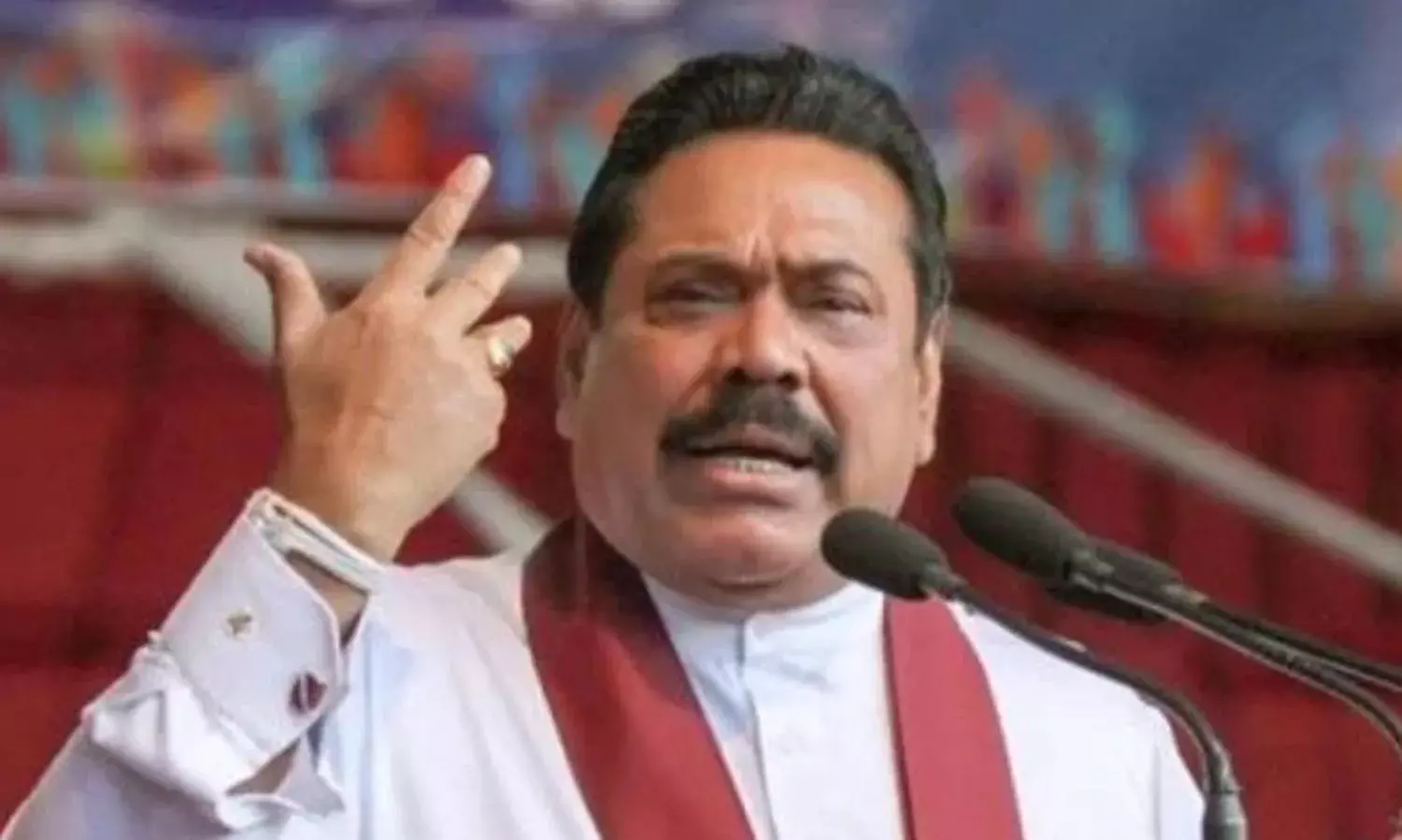Rajapaksa Resigns but Vows to Come Back with Voter Support to Subdue Anti-National Forces
The Citizen’s coverage of the political crisis in Sri Lanka
COLOMBO: Mahinda Rajapaksa resigned from the Premiership of Sri Lanka on Saturday to make way for the re-appointment of Ranil Wickremesinghe as Prime Minister.
Wickremesinghe would be sworn-in as Prime Minister on Sunday along with a 30-member cabinet.
Rajapaksa’s resignation followed Thursday’s Supreme Court ruling which negated the November 9 gazette issued by President Maithripala Sirisena dissolving parliament and declaring fresh elections.
With the court restoring a parliament in which Wickremesinghe had a proven majority, President Sirisena had no option but to give the Premiership back to him.
Wickremesinghe had demonstrated majority support three times - twice through a No Confidence Motion against the “usurper” Rajapaksa and once through a motion expressing confidence him.
On October 26, President Sirisena appointed Mahinda Rajapaksa of the Sri Lanka Podujana Peramuna (SLPP) as Prime Minister though Rajapaksa did not have majority support in parliament.
When Rajapaksa failed to muster majority support, the President dissolved parliament and ordered fresh elections be held on January 5, 2019.
But the aggrieved United National Front (UNF), led by Wickremesinghe went to the Supreme Court. The court ruled the dissolution as premature and unconstitutional, and also quashed the order to hold fresh elections.
Rajapaksa’s Warning
In his five-page parting statement on Saturday, Rajapaksa warned that the UNF government and Sri Lanka will be held hostage to the divisive, separatist and anti- national agenda of the Tamil National Alliance (TNA).
The United National Party (UNP), which is the core group in the UNF, has only 103 MPs. But it needs 113 to have a simple majority in parliament. The UNF now has 117 MPs. But 14 of them are from the TNA, Rajapaksa pointed out. The UNF needs the TNA for sheer survival.
Rajapaksa warned that given the manifest fear of elections in the UNF, demonstrated earlier when it tried every trick in the book to postpone the local bodies and provincial elections, attempts will be made to postpone the parliamentary elections also.
Parliamentary elections are due in 2020.
If parliamentary elections are held, a Sri Lanka Podujana Peramuna (SLPP)-Sri Lanka Freedom Party (SLFP) alliance will come to power, because these two parties have a combined voter base of 54%, Rajapaksa said.
“We will bring the forces opposed to the country to their knees by organizing the people,” he vowed.
Rajapaksa pointed out that the Supreme Court’s judgment was against the holding of an election which had already been declared. He said that he was concerned about the consequences of not holding an election already declared.
“We are now in direct confrontation with a group of political parties that have continually engaged in various subterfuges to avoid holding elections,” he said.
Rajapaksa recalled that the Wickremesinghe-led UNF government had continually tried to postpone local bodies elections on the grounds that the delimitation of constituencies had not been completed. It was only after the Commissioner of Elections declared that he would hold elections in constituencies in which delimitation was not an issue, that the polls were held.
Further, to get two thirds majority in parliament to postpone Provincial Council elections, the UNF government had to agree to the minor parties’ demand that 50% and not 40% of the seats would have to be through the Proportional Representation System.
“The government had to perform demeaning contortions to get the Provincial Council elections to be postponed,” Rajapaksa said.
He pointed that Provincial Council elections have been pending for the past one year and three months.
“There is no inkling when they will be held,” he said and added that “people are now being deprived of a general election.”
Fears About New Constitution
Rajapksa said that the Wickremesinghe government is committed to bringing about a new constitution at the behest of the TNA.
He said that the new constitution has already been drafted and published in the newspapers as well. The draft constitution envisages the division of Sri Lanka into “nine semi-independent federal units.”
“It will abolish the Executive Presidency,” he added.
The new constitution had been drafted by certain individuals “who turned the country into an ungovernable mess,” Rajapaksa said.
Rajapaksa warned that there is much that the UNP-TNA coalition can do without informing the President, and recalled how in 2002, the UNP government headed by Wickremesinghe signed a controversial Ceasefire Agreement with the Tamil Tigers without informing President Chandrika Kumaratunga.
Economic Mess
Rajapaksa charged that the UNF regime had pushed the country into a debt trap like the one seen by Greece.
He charged that in the last three and a half years, the UNF government had borrowed US$ 20.7 billion in foreign currency alone. And all that was “for consumption” he said.
President Sirisena could not stand by and watch the country being destroyed, Rajapaksa said and added that he was invited to take up the Premiership in a caretaker capacity to clean up the mess ahead of fresh elections.
“We appreciate the difficult and bold decision of the President on October 26,” Rajapaksa affirmed.
Hope For The Future
However, all is not lost, Rajapaksa said. The new constitution envisaged by the UNF-TNA cannot be passed since the government does not have the required two thirds majority.
He also stated that the SLPP led by him, the SLFP led by President Sirisena and other parties in the North East and the Central Provinces together control 54% of the votes in the country.
“We will bring down the forces opposed to the country down to their knees by organizing the people,” Rajapaksa affirmed.





